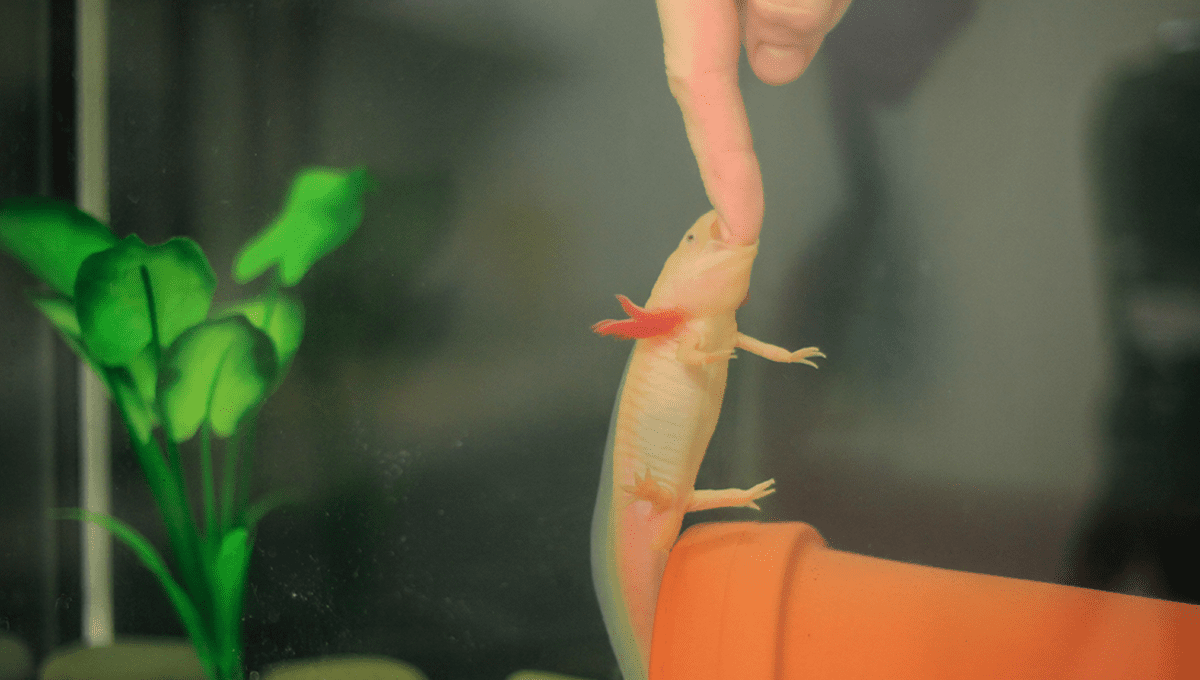
Ahh the axolotl (Ambystoma mexicanum), undoubtedly one of nature’s weirdest offerings. Famous for their ability, or rather inability, to grow up, they never undergo metamorphosis and stay in their larval juvenile stage even as adults in a strange biological phenomenon called neoteny.
Wild axolotls are critically endangered and only found in a few waterways above Mexico City. Axolotls are salamanders, with feathery gills and a few ways of breathing including functional lungs and the ability to breathe through their skin. They are also renowned for being able to regenerate just about any part of their body including the spinal cord and even their brain. So what are these incredible creatures eating to fuel such impressive antics?
What do axolotls eat?
Axolotls may have a permanently smiley expression but they are actually carnivores hoovering up a diet of crustaceans, small fish, and mollusks. They tend to swallow their food with a mouthful of water, sending it straight into their stomach instead of taking big chunks. Axolotls are capable of biting food items and giving any neighboring tank fellows a nip if they get too close. There is also some suggestion they can remove limbs and indulge in a spot of cannibalism when growing up.
“It’s pretty gruesome, but cannibalism is a possible reason why they grow their arms back,” says Northeastern associate biology professor James Monaghan.
Do axolotls have teeth?
The reason for this is all to do with dentition. Technically axolotls do have teeth but they are very rudimentary, designed for gripping rather than biting or tearing flesh. Axolotl teeth have even been studied in regard to how teeth develop in different species. Typically axolotls make popular pets so while axolotls do have some teeth they are too small and dull to do any real damage to an unsuspecting axolotl owner.
Source Link: Do Axolotls Bite?